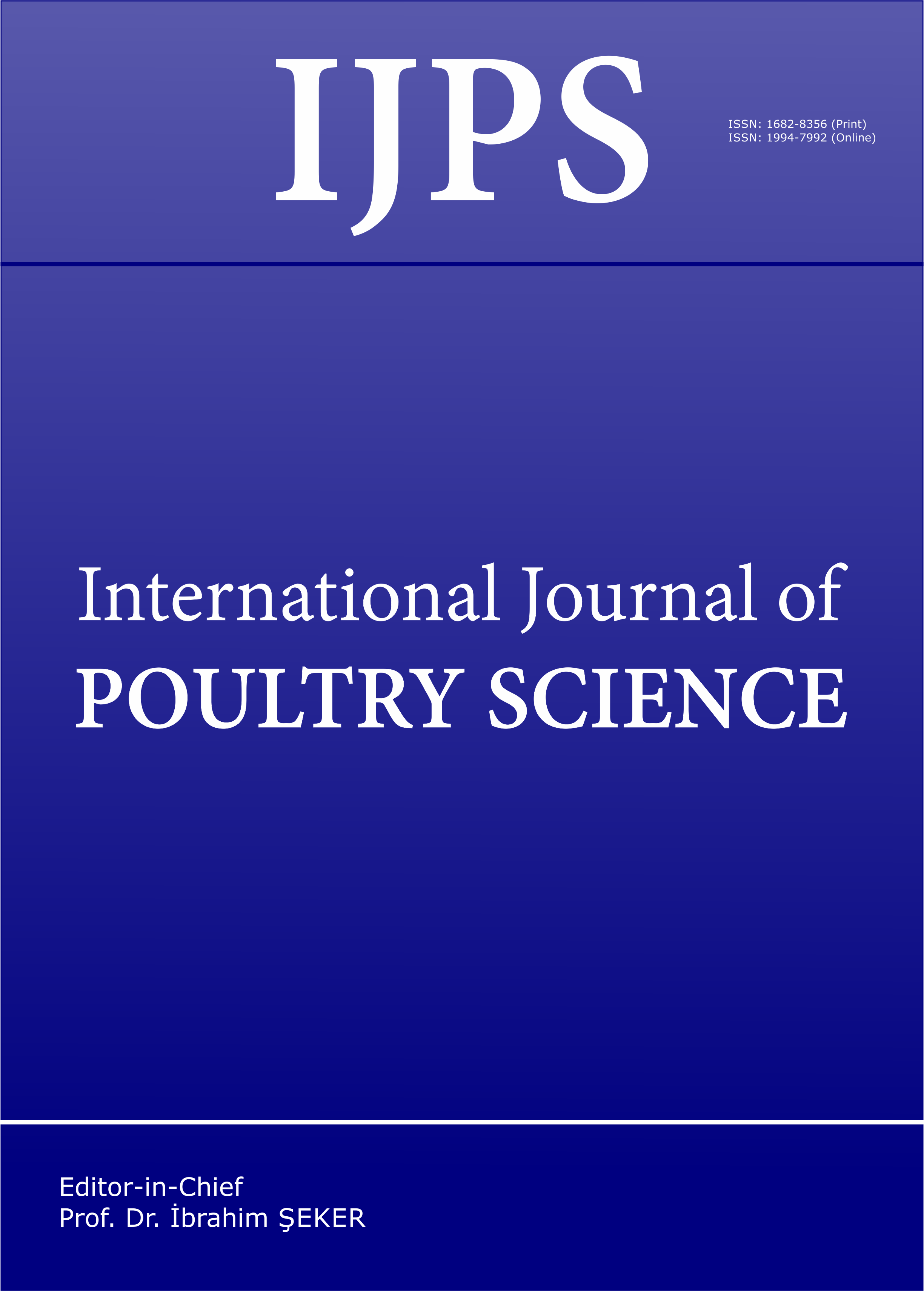Antibody Response of Non-Dewormed and Dewormed Village Chickens to Sheep Red Blood Cells
DOI:
https://doi.org/10.3923/ijps.2014.353.356Keywords:
Anti-sheep red blood cells (anti-SRBC), deworming, helminths, hemagglutination, immunity, village chicken, ZambiaAbstract
The economic activities of rural communities rely on small scale enterprises such as raising village chickens. However, the impact of many infectious diseases has hampered the activities of these rural communities necessitating the use of vaccines to control and mitigate the negative effects of the diseases. Understanding the effect of helminths on the immune system and ultimately on the outcome of vaccinations is important. In this study, the effect of deworming on the immune response was evaluated by antibody titres to sheep red blood cells using direct hemagglutination in 41 naturally helminth-infested village chickens. We found that the immune response of both the control and dewormed groups of chickens, respectively, to sheep red blood cells were similar at primary (mean titres 726.74 and 819.58; p = 0.78) and secondary (mean titres 1822.24 and 1792.92; p = 0.95) levels. The results show that helminth infestation of clinically healthy chickens may not grossly affect the immune response of village chickens, suggesting that naturally infested chickens can be immunized without deworming.
References
Boa-Amponsem, K., E.A. Dunnington, F.W. Pierson, C.T. Larsen and P.B. Siegel, 2000. Antibody responses to different dosages of sheep red blood cells in lines of chickens selected for high and low antibody response to sheep red blood cells. Poult. Sci., 79: 159-162.
Cheema, M.A., M.A. Qureshi and G.B. Havenstein, 2003. A comparison of the immune response of a 2001 commercial broiler with a 1957 randombred broiler strain when fed representative 1957 and 2001 broiler diets. Poult. Sci., 82: 1519-1529.
Henning, J., J.Morton, R. Pym, T. Hla, K. Sunn and J. Meers, 2013. Economic analysis of interventions to improve village chicken production in Myanmar. Prev. Vet. Med., 110: 525-540.
Horning, G., S. Rasmussen, A. Permin and M. Bisgaard, 2003. Investigations on the influence of helminth parasites on vaccination of chickens against Newcastle disease virus under village conditions. Trop. Anim. Health Prod., 35: 415-424.
Juhl, J. and A. Permin, 2002. The effect of Plasmodium gallinaceum on a challenge infection with < i>Ascaridia galli in chickens. Vet. Parasitol., 105: 11-19.
Katoch, R., A. Yadav, R. Godara, J.K. Khajuria, S. Borkataki and S.S. Sodhi, 2012. Prevalence and impact of gastrointestinal helminths on body weight gain in backyard chickens in subtropical and humid zone of Jammu, India. J. Parasitic Dis., 36: 49-52.
Parmentier, H.K., M. Walraven and M.G. Nieuwland, 1998. Antibody responses and body weights of chicken lines selected for high and low humoral responsiveness to sheep red blood cells. 2. Effects of separate application of Freund's complete and incomplete adjuvant and antigen. Poult. Sci., 77: 256-265.
Phiri, I.K., A.M. Phiri, M. Ziela, A. Chota, M. Masuku and J. Monrad, 2007. Prevalence and distribution of gastrointestinal helminths and their effects on weight gain in free-range chickens in Central Zambia. Trop. Anim. Health. Prod., 39: 309-315.
Pleidrup, J., T.S. Dalgaard, L.R. Norup, A. Permin and T.W. Schou et al., 1998. Ascaridia galli infection influences the development of both humoral and cell-mediated immunity after Newcastle disease vaccination in chickens. Vaccine, 32: 383-392.
Ruiz-Feria, C.A. and S.T. Abdukalykova, 2009. Arginine and vitamin E improve the antibody responses to Infectious Bursal Disease Virus (IBDV) and sheep red blood cells in broiler chickens. Br. Poult. Sci., 50: 291-297.
Downloads
Published
Issue
Section
License
Copyright (c) 2014 Asian Network for Scientific Information

This work is licensed under a Creative Commons Attribution 4.0 International License.
This is an open access article distributed under the terms of the Creative Commons Attribution License, which permits unrestricted use, distribution and reproduction in any medium, provided the original author and source are credited.

